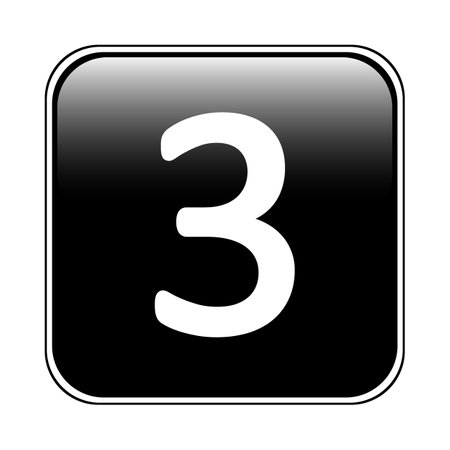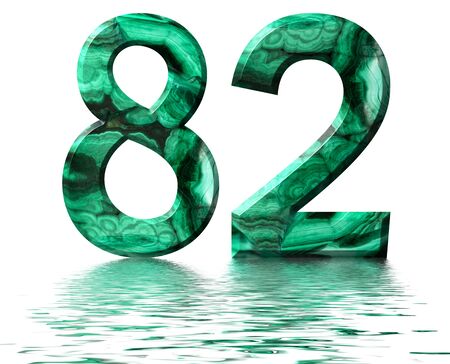1. Introduction to Master Numbers
If you’ve ever dived into the world of numerology, you might have come across the term “Master Numbers.” But what exactly are Master Numbers, and why do they hold such a special place in the hearts of so many Americans interested in metaphysical traditions? Let’s break it down step by step and explore how these powerful numbers became a part of American culture.
What Are Master Numbers?
In the simplest terms, Master Numbers are double-digit numbers that repeat the same digit—specifically 11, 22, and 33. These numbers are considered to have extra-strong vibrations or energies compared to regular single-digit numbers in numerology. Many people believe that if your birth date or name calculation leads to a Master Number, you’re meant for something bigger or have special abilities to share with the world.
The Origin of Master Numbers in Numerology
Numerology itself is an ancient practice that dates back thousands of years, with roots in cultures like Ancient Greece, Egypt, and China. The idea of Master Numbers, however, became more popular in the late 19th and early 20th centuries thanks to modern numerologists who wanted to highlight these unique repeating numbers as having higher spiritual significance. Over time, this concept made its way into American esoteric circles and spiritual communities.
Master Numbers at a Glance
| Master Number | Common Meaning | Nickname |
|---|---|---|
| 11 | Intuition, inspiration, spiritual insight | The Illuminator |
| 22 | Building dreams into reality, master builder | The Master Builder |
| 33 | Compassion, guidance, selfless service | The Master Teacher |
The Rise of Master Numbers in the U.S.
The fascination with Master Numbers really took off in America during the New Age movement of the 1960s and 70s. People began exploring different forms of spirituality outside traditional religions, and numerology—with its promises of hidden talents and life purposes—became incredibly popular. Today, whether you’re reading a horoscope online or joining a metaphysical workshop in California or New York, talk of Master Numbers is everywhere.
2. Master Numbers in American Cultural History
Master numbers like 11, 22, and 33 have played a unique role in American cultural history. These powerful numbers, rooted in numerology, have been adopted and interpreted in various ways over the decades. Their influence can be seen through spiritual movements, philosophical ideas, and even pop culture references.
The Rise of Numerology in America
Numerology started gaining popularity in the United States during the late 19th and early 20th centuries. This was a time when Americans were fascinated by new spiritual ideas from both Eastern and Western traditions. Master numbers became especially significant because they were believed to hold more spiritual power than other numbers.
Key Periods of Popularity
| Time Period | Key Influences | Cultural Impact |
|---|---|---|
| Late 1800s – Early 1900s | The New Thought movement and Theosophy | Interest in personal development, mystical experiences, and self-discovery grew; master numbers gained attention as symbols of higher potential. |
| 1960s – 1970s | Counterculture and Spiritual Revival | People explored alternative spiritual practices; master numbers appeared in books, workshops, and popular media. |
| 1980s – Present | New Age Movement and Digital Age | Numerology apps, online readings, and self-help books made master numbers accessible to everyone. |
Master Numbers and American Spiritual Movements
American spiritual movements have often embraced numerology as a way to understand lifes deeper meaning. For example, the New Thought movement saw master numbers as signs of personal transformation. In modern times, life coaches and motivational speakers frequently reference master numbers when talking about achieving ones highest potential or discovering a “life purpose.”
Examples of Master Numbers in American Culture
- Lifestyle Magazines: Articles about numerology often feature master numbers as keys to success or love.
- Pop Culture: TV shows and movies sometimes use characters with special birth dates connected to master numbers.
- Workshops: Self-help seminars may include sessions on how to harness the power of master numbers for personal growth.
The fascination with master numbers continues to evolve as Americans look for meaning and guidance in an ever-changing world. Their presence in everyday language, entertainment, and personal development is a testament to their lasting appeal.

3. Master Numbers in Modern American Society
Master Numbers in Everyday Life
In the United States today, Master Numbers like 11, 22, and 33 have found their way into the fabric of everyday life. Many Americans encounter these numbers without even realizing their significance—perhaps when glancing at a digital clock that reads 11:11, or noticing an address or phone number with repeating digits. For some, these moments are more than coincidence; they see them as signs or reminders to pay attention to their thoughts and feelings.
Master Numbers in Popular Media
The fascination with Master Numbers is also reflected in American pop culture. TV shows, movies, and books sometimes feature characters who reference numerology or experience meaningful moments tied to repeating numbers. Celebrities and influencers occasionally share stories about seeing 11:11 or other significant numbers, sparking trends and conversations on social media platforms like Instagram and TikTok.
Examples of Master Numbers in Pop Culture
| Medium | Example | Description |
|---|---|---|
| TV Shows | “Stranger Things” | The main character’s name is Eleven, which draws curiosity toward the number’s deeper meaning. |
| Social Media | #1111 Hashtag | Trending hashtags encourage users to share their own encounters with repeated numbers. |
| Music | Song Lyrics | Artists mention “wishing at 11:11” to highlight moments of hope or change. |
Master Numbers and Wellness Culture
In recent years, the wellness movement across the U.S. has embraced numerology as a tool for self-discovery. People use Master Numbers during meditation sessions, yoga classes, or while journaling about personal goals. Some wellness coaches and therapists incorporate numerology into their practices to help clients find direction and purpose.
Ways Master Numbers Show Up in Wellness Practices:
- Meditation: Focusing on specific numbers during guided meditations for clarity or intention setting.
- Affirmations: Repeating positive statements at 11:11 as a daily ritual.
- Personal Growth Workshops: Exploring life path numbers to better understand strengths and challenges.
This growing interest has made Master Numbers a familiar topic not only among spiritual communities but also among people seeking practical tools for mindfulness and self-improvement. Whether seen on a clock, celebrated in pop culture, or used for personal growth, Master Numbers have become part of the modern American experience.
4. Notable Figures and Events Associated with Master Numbers
American Personalities Linked to Master Numbers
In the United States, Master Numbers like 11, 22, and 33 have fascinated both numerology enthusiasts and the general public. Many believe these numbers hold unique energies and are often associated with influential figures who made a significant impact in American society. While there is no scientific proof that someones success is due to their Master Number, it is fun to look at some famous Americans whose life paths or birth dates are tied to these special numbers.
Key American Personalities and Their Master Numbers
| Name | Profession | Master Number Connection |
|---|---|---|
| Barack Obama | 44th U.S. President | Life Path Number 11 (in some numerology systems) |
| Martin Luther King Jr. | Civil Rights Leader | Life Path Number 22 (in some interpretations) |
| Madonna | Singer & Pop Icon | Master Number 11 in chart analysis |
| Steve Jobs | Entrepreneur, Apple Co-founder | Associated with Master Number 22 by numerologists |
Historical Moments Connected to Master Numbers
Certain dates that add up to Master Numbers are seen as especially meaningful in American history. For example, major national events that happened on days with a numerological sum of 11, 22, or 33 often attract extra attention from those interested in mystical or symbolic significance.
Examples of Key Dates:
- September 11, 2001 (9/11): The tragic events of this day are forever marked in American memory. Numerology fans point out the repeating “11” pattern as a symbol of awakening and transformation.
- July 4, 1776: The date of Americas independence adds up to a master number in some calculations (7+4+1+7+7+6=32; then 3+2=5), but many numerologists focus on the strong double digits present in the year itself (1776).
- November 22, 1963: The assassination of President John F. Kennedy occurred on a date loaded with master numbers—both the month (11) and the day (22).
Master Numbers in American Pop Culture
The influence of Master Numbers isnt just limited to historical figures or moments—they also pop up regularly in movies, TV shows, and music. Hollywood loves symbolism, and numbers like 11 and 22 often show up as secret codes or mystical references.
- “Stranger Things”: The character “Eleven” has psychic abilities, tying her directly to the power of this master number.
- “Oceans Eleven”: This blockbuster film title uses the master number for its team of skilled con artists.
- Songs like “22” by Taylor Swift: Even though its about turning twenty-two years old, fans love to find hidden meanings in the repetition of numbers.
This fascination with Master Numbers continues to inspire curiosity and creativity across different aspects of American culture.
5. Debate and Skepticism around Master Numbers
While Master Numbers like 11, 22, and 33 have captured the imagination of many Americans interested in numerology, their place in both popular culture and academic circles is not without controversy. In the United States, conversations about numerology often spark lively debate between believers and skeptics.
The Main Points of Contention
| Believers Perspective | Skeptics Perspective |
|---|---|
| See Master Numbers as spiritually significant and believe they offer unique guidance or power. | View numerology, including Master Numbers, as lacking scientific evidence and consider it a pseudoscience. |
| Use Master Numbers for personal growth, decision-making, or even in business strategies. | Argue that any perceived influence of numbers is due to coincidence or confirmation bias. |
| Feel that seeing repeating numbers (like 11:11) is a sign from the universe. | Attribute these experiences to pattern recognition, a normal psychological phenomenon. |
Cultural Factors Shaping the Debate
American society places a strong emphasis on individual freedom and self-expression. This has allowed alternative beliefs like numerology to flourish alongside more traditional viewpoints. In recent years, the rise of social media platforms such as TikTok and Instagram has helped spread numerological ideas—especially Master Numbers—among younger generations. At the same time, science education and critical thinking are highly valued in the U.S., fueling skepticism and ongoing debate.
Why Do Master Numbers Remain Popular?
Despite criticism, Master Numbers continue to thrive in American culture. Part of their appeal lies in their simplicity: anyone can calculate their Life Path Number with just a birthdate, making numerology accessible to all. Many people find comfort in having an extra layer of meaning in their lives, especially during uncertain times. Additionally, pop culture references—from celebrity interviews to lifestyle blogs—keep these ideas fresh in public consciousness.
The Future of Numerology in America
Looking ahead, its likely that American attitudes towards numerology will keep evolving. As interest in spirituality and self-help grows, so may curiosity about Master Numbers. However, expect the debate between believers and skeptics to remain lively as Americans balance personal belief with rational inquiry. Whether you see them as meaningful signs or just fun coincidences, Master Numbers are set to stay part of the conversation for years to come.


